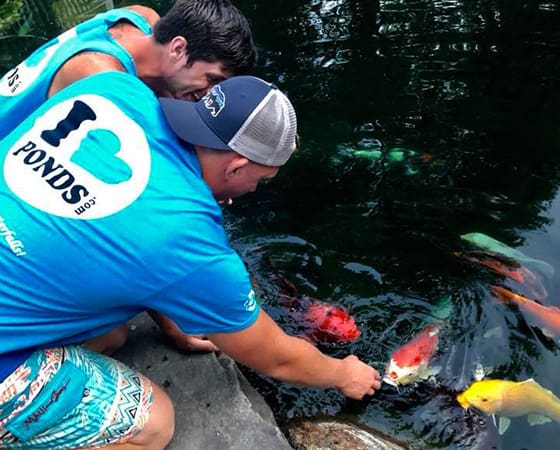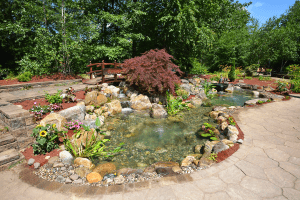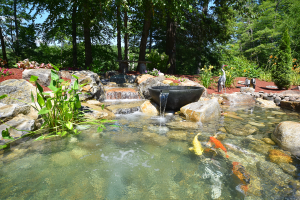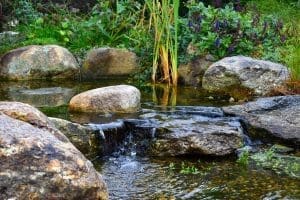Summertime brings longer days, more sunlight, and unfortunately for pond owners—rising water temperatures. When extreme heat hits, your koi can become stressed, vulnerable to illness, and even suffer from oxygen depletion. Here’s how to protect your fish and keep your pond healthy during a heat wave.
1. Monitor Water Temperatures
Koi thrive best in water temperatures between 65°F and 75°F. Once temperatures creep above that range—especially past 75°F—your pond’s environment becomes more stressful for your fish. Use a floating thermometer to keep tabs on temperature regularly. If it starts to climb, it’s time to take cooling action.
2. Add Shade
Excess sun exposure raises water temperatures and stresses your koi. One simple way to help? Add shade. Install a shade sail or use aquatic plants like water lilies or hyacinths. These not only provide cover from the sun but also help maintain cooler water and reduce algae growth.
3. Check Oxygen Levels
Warm water holds less dissolved oxygen, and that spells trouble for koi. If your pond doesn’t already have an aeration system, now’s the time to install one. Diffused air systems or surface aerators will help keep oxygen flowing when your fish need it most.
4. Adjust Feeding
Koi metabolism changes with temperature. When the water reaches 85°F, your koi may struggle to digest food properly. Feed lightly, and once the temperature hits 90°F, it’s best to stop feeding altogether. Unused food will only break down and add to water quality issues.
5. Remove Excess Algae
A bit of algae is natural, but too much during a heat wave can strip oxygen from your water—especially overnight when photosynthesis stops. Keep algae in check with manual removal, and consider adding beneficial bacteria to outcompete unwanted growth.
At New England Aquatic Landscaping, we specialize in creating and maintaining koi ponds designed to thrive in every season—even the sweltering ones. Whether you’re looking to add shade, install aeration, or schedule a summer maintenance checkup, we’re here to help.
Need help protecting your pond this summer? Contact us for expert service and advice.




